For many people, cooking or baking is a staple of the fall and winter holiday season. Recipes passed down through generations are often followed or recreated to make meals specifically associated with this time of the year. But where do these habits and traditions come from? And what do they say about human culture?
Joanna Smith, a UNC doctoral student studying religion and its philosophies, recently spoke with 97.9 The Hill’s Aaron Keck about these cooking rituals. She said many of the food-based traditions Americans have are based around religion.
“Looking at meal-based rituals, like Thanksgiving, Hanukkah and Christmas celebrations,” she said, “what makes that meal different from other meals? For some people, there’s a very explicitly religious answer to that: it’s about specific prayers being said in the right order, it’s about the food being prepared to certain ritual guidelines.
“But for many folks,” Smith added, “it’s about a specific group of people being there or specific foods being cooked or about the intention that everyone is bringing to the table.”
Using these gatherings and celebrations reinforces many people’s emotions or perspectives around such holidays as distinct dates on a repeating calendar. Smith said this repetition aids in shaping what people recognize or rely on as tradition, meaning everyone’s different experiences can create many different rituals.
“The way we celebrate holidays is so individual and, in America specifically, I think it reflects an astonishing diversity,” she said. “If you ask ten people what a Christmas Eve meal looks like, you’re going to get ten dramatically different answers. I’m generally a little suspicious of the idea of America as a ‘melting pot,’ I think that can cover up a lot of sins. But when we look at food, we do see this really captivating diversity reflecting back.”
This holiday season, however, many people’s traditions may be more interrupted than usual. With the COVID-19 pandemic continuing at a worse rate than earlier in 2020, public health and government officials are urging residents to limit travel, gather in much smaller groups and remain socially distant.
Smith said the pandemic presents an intriguing chance to examine or test philosophies around the holidays and rituals.
“With this, of course, being a holiday season like no other,” she said, “I’ve been finding myself asking increasingly ‘what makes those rituals efficacious,’ especially if we can’t have those people gathered around the table we expect to see.”
What Smith has found, she said, is many people finding ways to continue these traditions. With the rise of technology, sharing moments with meaningful people from afar has become even easier. But Smith said, especially with holidays recipes or certain meals, people already use food as a way to connect with those who are not there in-person.
“Even this year,” she described, “I’ve heard of friends doing this: of cooking for themselves, their wife, their little solo Thanksgiving. [Like] cooking their mom’s cassoulet recipe, making their aunt’s sweet potato pie…and I think food is still a beautiful way to bridge those distances with flavor, with smell and with the ritual process of cooking.”
Because holidays are such fixed points on the calendar, Smith said she hopes when the pandemic is fully past us, society will find a way to hold more spontaneous celebrations and gatherings throughout the year.
“I hope that when there is a vaccine, when things feel resolved,” she said, “that we, in our own little private ways, are able to celebrate a spontaneous holiday.”
“But,” Smith added, “I’m also really struck by how holidays that are set on the calendar, that are going to happen whether it’s a great year or terrible year, are also moments where we can see a lot of resilience.”
Photo via Craig Adderley.
Chapelboro.com does not charge subscription fees. You can support local journalism and our mission to serve the community. Contribute today – every single dollar matters.
Related Stories
‹

Court OKs Dismissing UNC Student Suit Seeking Virus RefundsWritten by THE ASSOCIATED PRESS A trial judge was correct to dismiss a lawsuit filed by then-University of North Carolina students seeking tuition, housing and fee refunds when in-person instruction was canceled during the 2020 spring semester as the coronavirus pandemic began, the state Court of Appeals ruled Tuesday. Several students at UNC system campuses and […]

UNC Details COVID-19 Guidance for Fall Semester; No Re-Entry Testing RequiredWith the start of a new academic year just weeks away, UNC leadership shared the latest round of COVID-19 guidance for the campus community on Friday. A release from UNC Chancellor Kevin Guskiewicz, Provost Chris Clemens and Lead Physician Dr. Amir Barzin outlined suggestions and changes for students ahead of their return to campus in […]
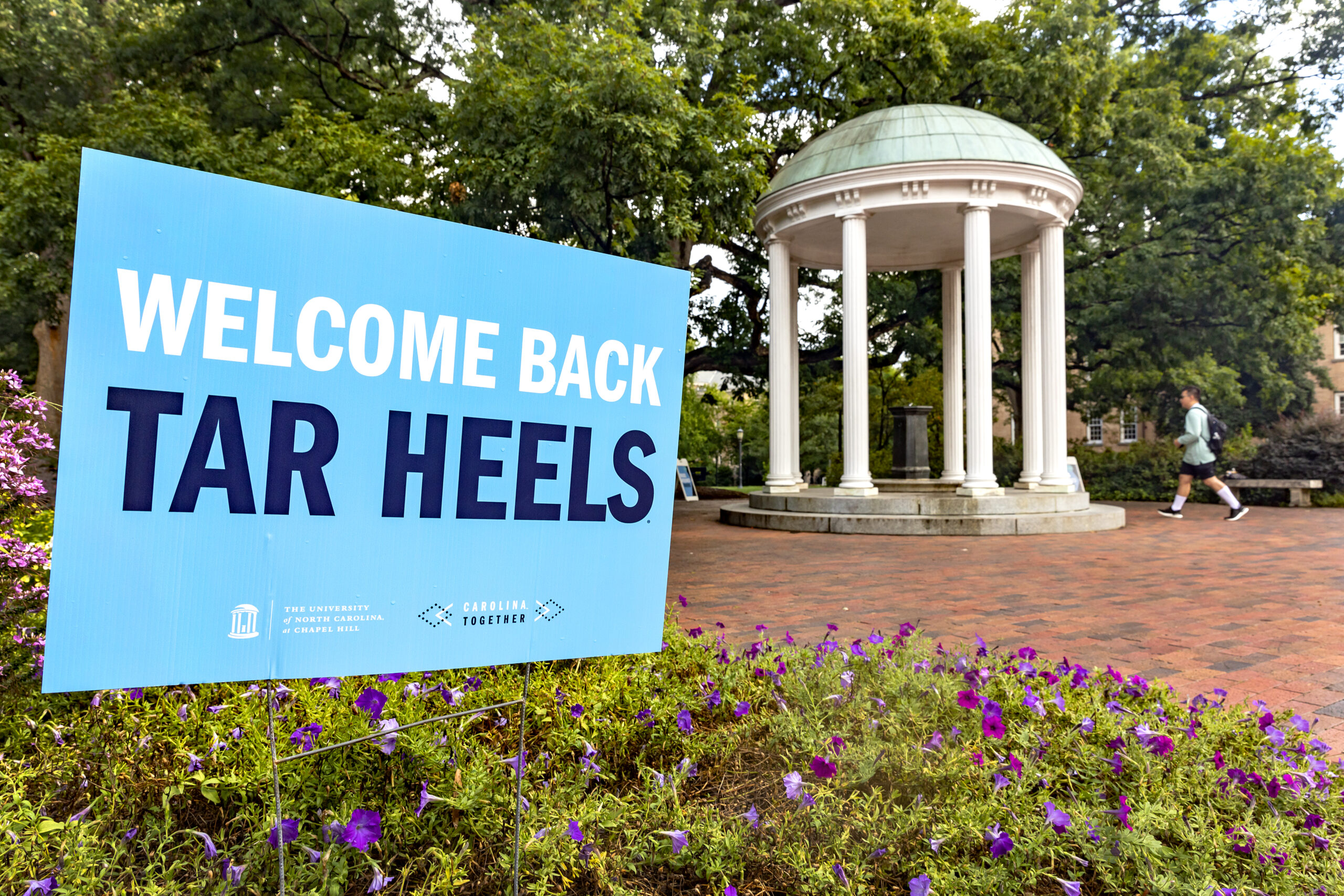
Top Stories of 2021: The Return to In-Person Learning and its Mental TollTo reflect on the year, Chapelboro.com is re-publishing some of the top stories that impacted and defined our community’s experience in 2021. These stories and topics affected Chapel Hill, Carrboro and the rest of our region. After more than a year of virtual learning, students of all ages returned to the classroom this year. Orange […]

Orange County's Kizzmekia Corbett One of TIME's Heroes of the YearScientist Kizzmekia Corbett has received several accolades this year thanks to her part in COVID-19 vaccine research. On Monday, she earned yet another: one from TIME magazine. Corbett, who is a Hurdle Mills native, is one of four researchers TIME named its 2021 Heroes of The Year based on their accomplishments to advance vaccine development. […]
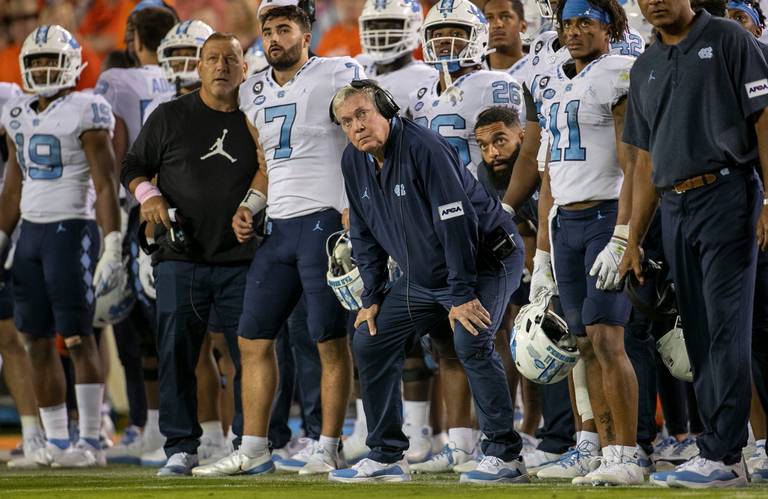
Art’s Angle: Unmasked MazeThe hype, which has been beneficial to recruiting in the long run, killed Carolina’s chances at Virginia Tech Friday night. It unified the orange-clad, near capacity crowd at Lane Stadium, a place where Justin Fuente had been booed and treated so inhospitably that his athletic director held a press conference to announce that Fuente was […]
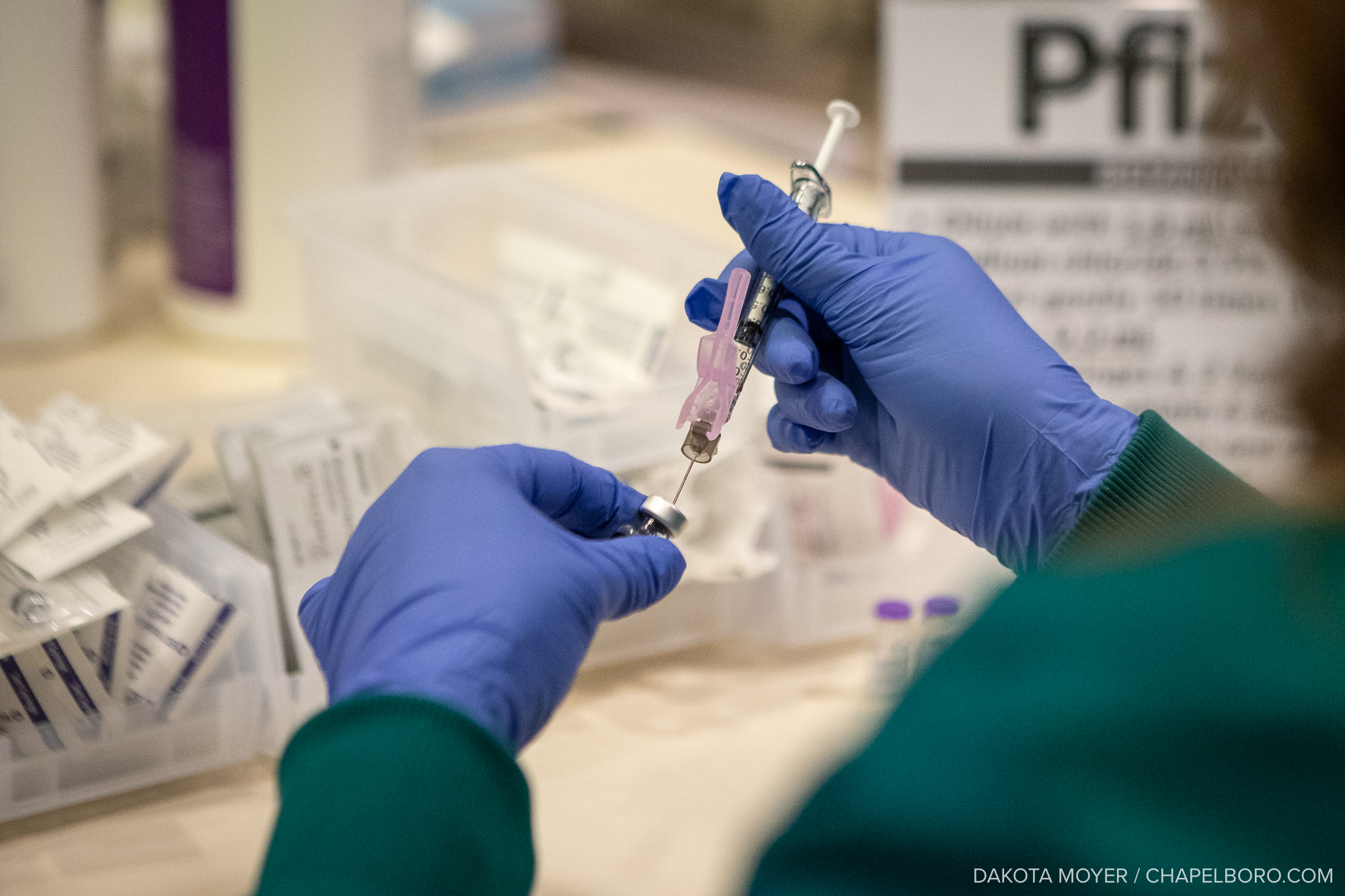
UNC to Automatically Register Employees for the COVID-19 VaccineWith the news that all frontline essential workers are eligible for the COVID-19 vaccine beginning on Wednesday, March 3, UNC is communicating plans on how it will affect university employees. Group 3 includes “college and university instructors and support staff” as well as other front-line essential workers and researchers, as defined by the North Carolina Department of Health […]
![]()
Report: Charges Dismissed for 2 Accused of Helping Take Down Silent SamTwo of the remaining people facing charges in the toppling of the Confederate statue known as Silent Sam saw their charges dismissed by the court system this week. According to a report from The News & Observer on Wednesday, the charges for Raul Arce Jimenez and Shawn Birchfield-Finn were dropped due to the local court system working to […]
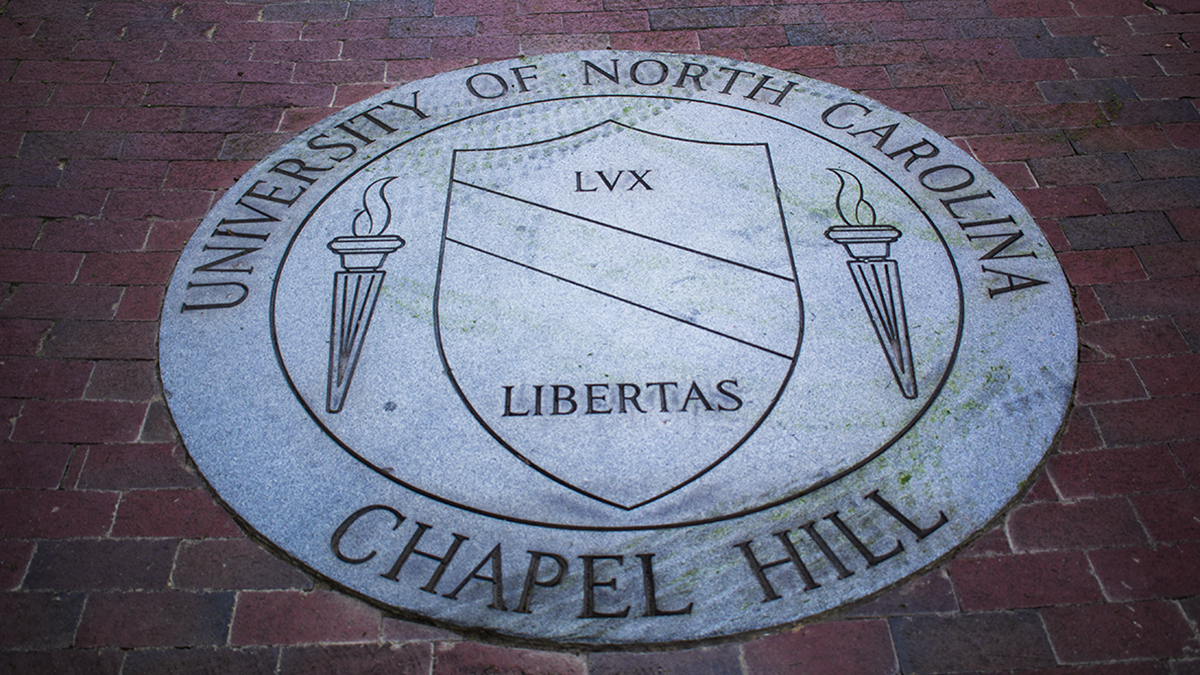
UNC Announces Budget Plan, Will Reduce Personnel and Operating FundsUNC released a two-year budget plan and guidelines Friday for its schools to balance their budgets in light of the COVID-19 pandemic. The plan, which includes 18 months of reductions to personnel and operations funding, was shared in a message to the campus community by Chancellor Kevin Guskiewicz, Executive Vice Chancellor Provost Bob Blouin and Interim […]
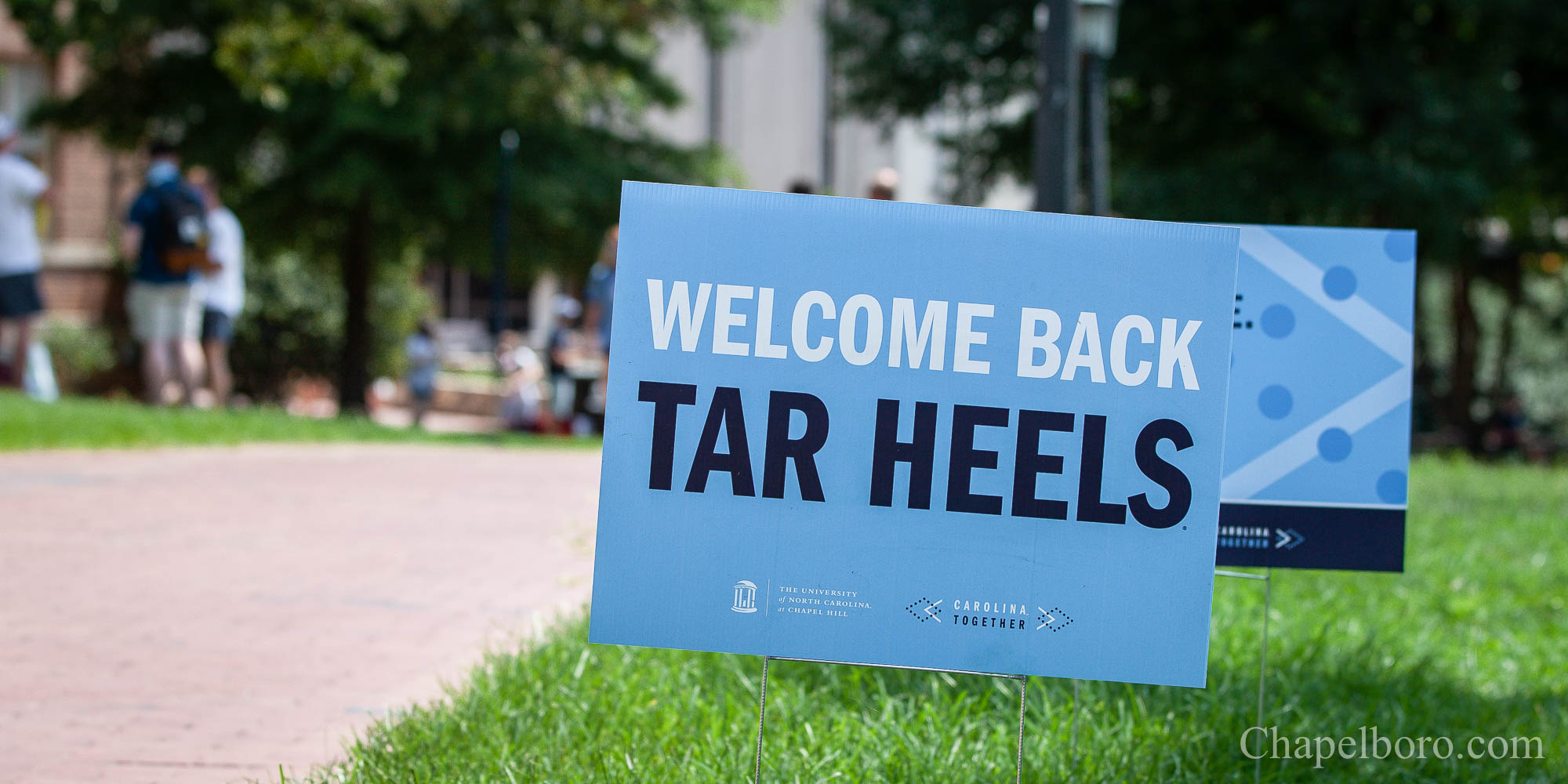
UNC Shares Details on Students' Required COVID-19 Test Ahead of Spring SemesterAs the spring semester approaches in Chapel Hill, UNC is sharing information on what COVID-19 testing requirements students must meet before returning to campus. On its Carolina Together website, the university shared Prior to Arrival testing protocols for all undergraduate students enrolled for classes who will either live on campus, live in the surrounding towns, […]
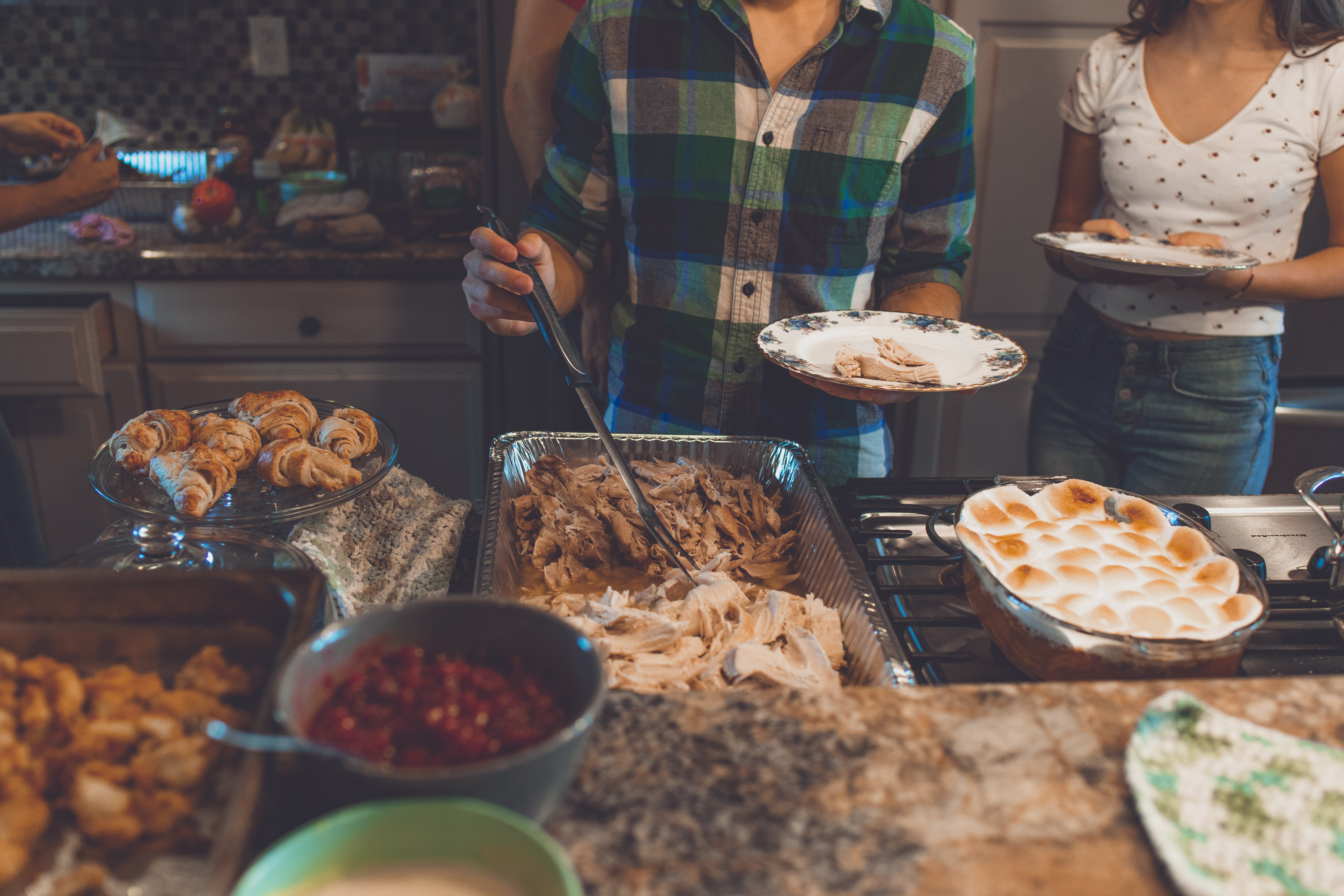
Holiday Rituals: What Our Cooking Says About UsFor many people, cooking or baking is a staple of the fall and winter holiday season. Recipes passed down through generations are often followed or recreated to make meals specifically associated with this time of the year. But where do these habits and traditions come from? And what do they say about human culture? Joanna […]
›











